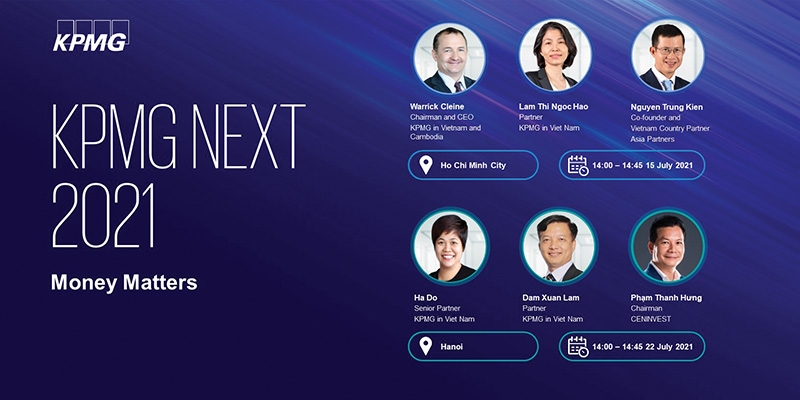Fresh business models vital to riding pandemic wave
 |
| Fresh business models vital to riding pandemic wave |
Lam Thi Ngoc Hao, head of national corporates and business transformation at KPMG in Vietnam, said that the current wave of the pandemic has disrupted previously working business models. Quarantines, transport disruptions, and changing consumer behaviours have put mounting pressure on many companies which are now facing growing cash flow problems amid rising expenses and a changing business environment.
As of the end of 2020, around 800,000 private companies were operating in different sectors in Vietnam, 96 per cent of which were micro and small businesses and 2 per cent were medium-sized enterprises. Despite the pandemic, the private sector contributed 42.68 per cent to the country’s GDP in 2020. However, 87.2 per cent of Vietnamese businesses have been negatively affected by COVID-19 with cash flow being one of their biggest problems.
Speaking at the virtual launch of the KPMG NEXT 2021 programme titled Money Matters, Hao said that businesses need to flexibly adapt to the rapid changes during the pandemic to reduce risks and maintain revenues. “They need to know which of their products and stores are profitable and which ones generate losses to decide whether to scale up or down, and delay unnecessary spending to maintain cash flows,” she added.
Nguyen Trung Kien, co-founder and Vietnam country partner of Asia Partners, said that all enterprises have experienced rapid changes such as evolving customer demands and the needs to enhance collaboration within their organisations during the social distancing period. Therefore, businesses should prioritise spending on things that help them adapt to the new working environment, such as remote working equipment.
In addition to minimising unnecessary costs, enterprises should continuously improve technology to catch up with the digitalisation trend. Those with many office branches and physical stores need to start considering an omnichannel strategy.
Kien explained that as customers switch to online shopping, many of them will visit physical stores less often. This should prompt businesses to streamline expenses on their store system while reviewing and polishing up their online customer experience. He advised businesses to invest in apps or human resources to manage e-commerce systems and improve customer experience.
“To turn a crisis into an opportunity, businesses should use this time to build up a team of talents and a technology base that will allow them to grow when the pandemic is over,” Kien stated.
After the pandemic, businesses will have an urgent need for new financial sources to accelerate their recovery and development. As credit institutions are tightening lending, one solution could be to call for capital from investors to ensure sufficient cash flow.
Although financiers have higher confidence in the recovery and development of Vietnam’s economy, they have become more picky regarding suitable businesses. Therefore, businesses need to prepare reasonable financial plans to maximise benefits for shareholders and stakeholders to facilitate the capital raising process.
Warrick Cleine, chairman and CEO of KPMG in Vietnam and Cambodia, said that in the past it was easier to raise large funds in Vietnam than smaller ones because the local system for venture and seeding capital is very small. International investors look for large deals because they target economies of scale. However, it is not easy to find both large and small capital sums during the pandemic.
“Investors are looking for returns, so companies need to have good balance sheets and business models. Scalable investment that allows capital to increase multiple times is also very important,” Cleine suggested.
KPMG NEXT is the company’s corporate social responsibility programme targeting small- and medium-sized enterprises in Vietnam that are looking to fast-track their sustainable growth. Throughout its 5-year journey, KPMG in Vietnam has organised several field trips to the likes of Thailand, Singapore, and Taiwan, attracting more than 200 leaders and 126 business representatives from different regions and sectors in Vietnam.
What the stars mean:
★ Poor ★ ★ Promising ★★★ Good ★★★★ Very good ★★★★★ Exceptional
 Tag:
Tag:
Related Contents
Latest News
More News
- KPMG launches tariff modeller in Vietnam to navigate US tariff risks (July 29, 2025 | 12:11)
- Removing hidden barriers to unlock ASEAN trade (June 29, 2025 | 11:31)
- New report charts path for Vietnam’s clinical trial growth (May 21, 2025 | 08:58)
- TTC Agris strengthens market position with investment in Bien Hoa Consumer JSC (May 19, 2025 | 10:14)
- World Bank to help SBV build shared database for banking industry (April 09, 2025 | 08:55)
- New trade alliances and investment hubs are redefining global power dynamics (April 03, 2025 | 17:00)
- ACCA and KPMG forge path for business leaders to pioneer ESG excellence (March 07, 2025 | 10:09)
- VietBank signs MoU with KPMG (February 26, 2025 | 18:47)
- Warrick Cleine MBE: an honour for services to British trade and investment in Vietnam (December 31, 2024 | 20:16)
- KPMG report offers fresh insight into leveraging AI (December 24, 2024 | 09:23)





















 Mobile Version
Mobile Version